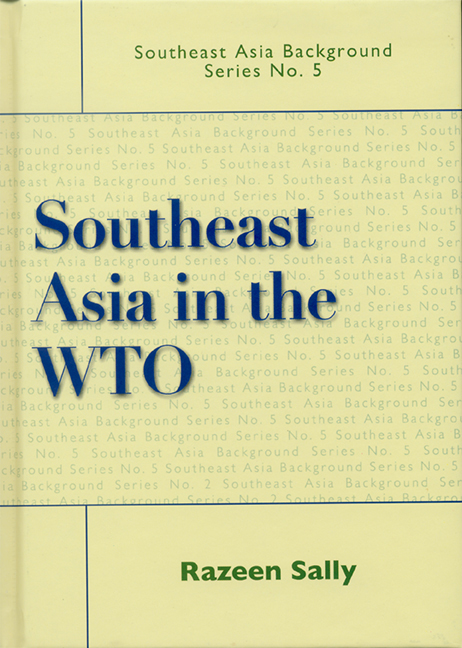7 - Other ASEAN Countries and WTO
Published online by Cambridge University Press: 21 October 2015
Summary
Of the ASEAN members not of central concern to this study, Myanmar and Brunei are members of the WTO, Cambodia has recently been accepted into the organization, and Laos and Vietnam are still in the queue for accession.
Myanmar, a founding member of the GATT and the WTO, is almost totally inactive. Its small mission in Geneva seems to concentrate on other international organizations in town while neglecting the WTO. There has been no Trade Policy Review (TPR) of Myanmar to date. As a least developed country it is not subject to regular TPRs.
Brunei Darussalam is hardly active in the WTO, though, unlike Myanmar, it has had one TPR. Its average MFN tariff is 3.1 per cent, the lowest in ASEAN next to Singapore. However, non-tariff barriers are not insignificant and there are restrictions on FDI. Brunei is basically an oil-dependent economy controlled by the state. New legislation depends on Emergency Orders issued by the sultan. Government regulation, by international standards, is not exactly transparent and predictable. Brunei has not even formally ratified its Uruguay Round commitments through adoption in national legislation.
Cambodia concluded negotiations to accede to the WTO before Cancun, while Laos and Vietnam are still negotiating. Working Parties for accession negotiations were set up for Cambodia in 1994, Laos in 1998, and Vietnam in 1995.
WTO membership makes sense for all three countries, in the first instance as a means of reinforcing and accelerating their transition from Plan to Market. This entails further liberalization of trade and FDI, and implementation of market-compatible trade procedures, all legally bound in WTO agreements. This should help to reallocate domestic resources more efficiently, especially by removing the protectionist bias against agriculture in the rural areas, and thus feed into higher growth and poverty reduction. Moreover, WTO membership will increase export market access and reduce exposure to non-tariff protection, underpinned by dispute settlement mechanisms.
- Type
- Chapter
- Information
- Southeast Asia in the WTO , pp. 77 - 80Publisher: ISEAS–Yusof Ishak InstitutePrint publication year: 2004



